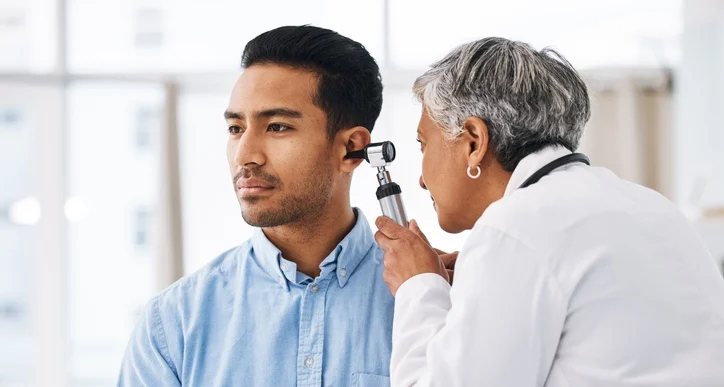
5 Things Doctors Can Learn From Nurses
You’ve probably heard the phrase “working in silos” or “silo-ization” mentioned in reference to healthcare, usually as a warning of something to avoid. In the past, healthcare professionals were educated in separate environments, or silos, and as a result, they tended to think and act separately in their working environments.
However, research has shown that interprofessional collaboration leads to better patient outcomes by improving teamwork and communication. That means that nurses and doctors (and other members of the healthcare team) have a vested interest in learning to work with each other.
And that includes listening to each other, and being open to the unique expertise of others.
As Linda Lindeke, PhD, RN, CNP, and Ann M. Sieckert, BAN, wrote in a 2005 article about nurse-physician collaboration for the Online Journal of Issues in Nursing, “Appreciation of the unique knowledge of contributing disciplines and a clear understanding of the unique contributions of nursing to care can demonstrate that nurses play an important role in achieving the positive patient outcomes that occur only through collaborative efforts.”
Today, America’s doctors are fortunate to work with the most highly-educated and well-trained nursing workforce in the country’s history.
“Most nurses in the hospital now have at least a BSN, and many have an MS or MSN, and there are some with a doctorate,” said Peggy Flannigan, PhD, associate chair and associate professor of nursing at Bradley University in Peoria, Illinois.
Nurses also have a special relationship with patients and training in caregiving that means they could teach doctors a thing or two—if physicians would take the time to listen.
5 Things Doctors Can Learn From Nurses:
What Patients are Really Thinking and Feeling—and What They Need
Nurses spend more time with patients than anyone else. They’re familiar with the subtle variations in the patient’s condition and have insight from their time at the bedside. If you want to know how a patient is really doing, the nurse is the person to ask first.
How to Gain Their Patients’ Trust
Patients are accustomed to nurses playing the role of patient advocate. They’re comfortable with nurses and they trust them--a lot. In fact, nurses are perennially ranked as the most trusted profession by the public in the annual Gallup polls.
If you want to find out more about a patient’s wishes—or get them to follow a plan of care—keep in mind that they may feel the most comfortable starting their conversation with a nurse.
How Family Dynamics Might Play a Role in a Patient’s Condition and Recovery
Patient-centered care isn’t just about the patient--it also includes the patient’s loved ones. By virtue of the amount of time that nurses spend with patients, they are likely to interact more with family members at the bedside. This helps them gain some insight into the patient, including vital information about what kind of support system the patient will have once they’re discharged from the hospital, or have left the clinic or practice.
How to Address the Hard Issues.
Nurses often have conversations with patients about sensitive issues. According to Flannigan, physicians sometimes miss out on the conversations about end-of-life care and other difficult decisions. Those hard conversations often fall to nurses.
“End-of-life decision-making isn’t covered in most medical school curricula, and unfortunately, it isn’t covered for most nurses until graduate school, either, but we figure it out,” she said. Doctors may be able to learn more about having those hard conversations from the nurses who have figured it out.
How to Put Patients First
While everyone on the healthcare team is focused on caring for the patient, all too often physicians are running ragged, trying to keep up with all the demands on their time, including administrative tasks. Doctors can look to nurses to remind them why they’re doing this job to begin with, by watching their nurses really focus on their patients and engage with them. It might even help doctors develop stronger bonds with their patients.
Family physician Steven Celestin, MD, noted that doctors may also want to appreciate nurses for another benefit: recruitment.
“A strong, compassionate, and competent nursing team can be the best recruitment tool for new patients (and staff) that a medical office can possibly have,” said Celestin, author of Tell It to Me Straight, Doc.
Just as physicians can learn from nurses, nurses can also learn from physicians. Not only is their medical training more extensive, but many doctors have long histories with certain patients and their families, and nurses can learn a great deal by observing their interactions.
Learn More
To create a new journey to physician success, simply complete the form on the right of this page and one of our experienced physician recruiters will contact you to learn more about your career and lifestyle goals.
Additional Physician Option: Locum Tenens
While you continue your physician job search for a full-time position, keep in mind that AMN Healthcare also provides great options for locum tenens. Begin the application process now, and then learn more about the flexible locums way to work from the links below.
- Locum Tenens: A great option for temporary physician jobs while you continue your permanent job search.
- EAP: Our locum tenens gain access to a valuable set of Employee Assistance Program benefits.
- Physician Jobs by Specialty: Explore physician jobs and learn about hourly salaries and the benefits of working locum tenens.
- Search All Physician Jobs: Uncover new possibilities in your physician career by exploring both short and long-term options and permanent choices.
- Candidate Benefits: AMN Healthcare takes care of our locum tenens with a variety of amazing benefits. Check out what's in store for our locums.
- Physician Licensing: Check out how we help move your career in amazing directions, both professionally and geographically.
- More Physician Resources: Use the content here to learn everything you need to know about our physician recruitment process.
Latest News
Maximizing Opportunity: 4 Internal Medicine Subspecialties Best Suited for Locum Tenens
While internal medicine covers a broad field, certain subspecialties stand out as particularly well-suited to locum tenens positions. From addressing critical care needs to exploring specialized
How Anesthesiologists Can Maximize Their Earning Potential
Anesthesiology is a rewarding career in medicine, both professionally and financially. Yet, like many other professions in healthcare, the earning potential is influenced by a combination of
Exploring OBGYN Subspecialties: Which Path is Right for You?
One of the most exciting aspects of becoming an OBGYN is the opportunity to pursue subspecialties that align with your professional goals, personal interests, and lifestyle preferences.
Screening Guidelines Every Family Medicine Physician Should Follow in 2025
For 2025, significant updates have been made to emphasize personalized medicine, technological advancements, and population-specific needs.
Otolaryngologist Salary Outlook 2025
For otolaryngologists, also known as ears, nose, and throat (ENT) specialists, salary trends reveal not only the growing demand for their expertise but also the evolving dynamics of healthcare
Preparing for Match Week: How to Create Your Rank Order List
Match Week is one of the most exciting—and nerve-wracking—moments in a medical student's life. It's the culmination of years of hard work, perseverance, and ambition, where students
Key Skills for Success in Child and Adolescent Psychiatry
Child and adolescent psychiatry is a deeply rewarding yet multifaceted field that requires a unique blend of clinical expertise, empathy, and communication. These young patients often exhibit
How Much Does a Rheumatologist Make?
On average, salaries for pediatric rheumatologists range from $180,000 to $210,000 per year, according to Salary.com and other healthcare industry sources.











